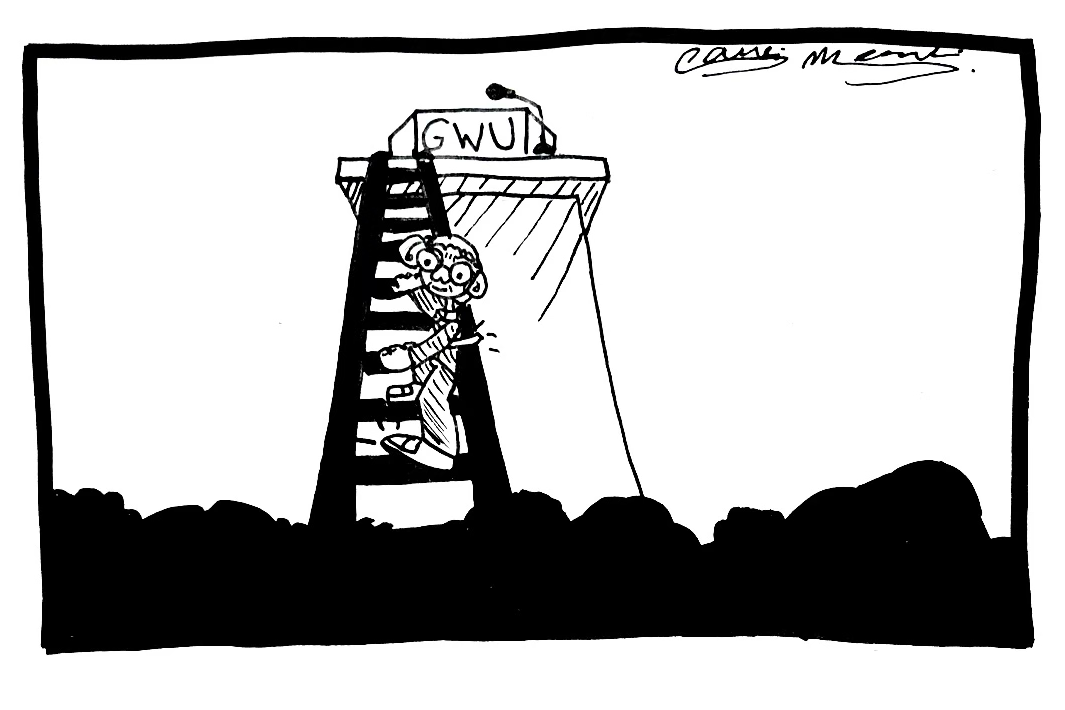After my showers I always wring out my layered hair, watching the copper toning gloss bleed into the fabric of my towel as it has every rinse since I dyed it last December. I dry off my body, running my fingers over new stretch marks that decorate the inside of my thighs and contours of my hips. I rub moisturizer into the textured, acne-ridden skin of my cheeks and down my noticeably softened jawline.
Like many college students, my body has changed drastically in the past year or so. I’m still myself in principle — bones, heart, soul — the same young girl with a dream, a pen and an affinity for making an ill-timed joke. But as my brain has grown, so has my body, and I grapple with that figurative and physical reflection every time I stare my honey-brown eyes down in the mirror. No one warned me about this second puberty of my early adulthood.
Half of the jeans I own don’t fit me anymore — too short in the legs or too tight in the waist. The pair I bought my senior year of high school ripped a couple days ago when I bent down to open my sink cabinet. They’re now in the bottom of the trash, torn the rest of the way down the pant leg because I lashed out at the fabric in frustration.
Like many of my clothes, my jeans hadn’t fit properly in months, but I brought them to school with me anyway. My mom said they’d likely loosen up once I was walking around campus regularly again. I naively believed her, in part because I sprung from her same cheap seed and didn’t want to buy new clothing but also because I knew it meant I was gaining weight I’d probably never get rid of.
Women, in varying degrees, are forced to tether our self-esteem to our appearance, no matter how much we try to avoid it. Our teeth are too yellow or our breasts are too small. Our thighs don’t have that gap when they touch and our rib cages are too wide to give us a coveted hourglass shape. Many of us grow up hating ourselves for having bodies that look different from our sisters, friends and favorite actresses because patriarchal society feeds off of the tears we shed for every pound we gain.
I write this article for two reasons. The first is to serve as a reminder to myself for when I inevitably pinch the extra skin on my stomach or underarms and need to stop myself from feeling guilty for something so trivial as the collection of adipocytes in my body. I’m learning to be kind to my body, but it’s a two steps forward, one step back kind of process.
I’m also writing this piece for every other person who’s ever thought that they don’t deserve ice cream after dinner or done manic sit-ups on the floor of their bedroom. It’s probably many more of us than we care to admit to each other.
Here is the truth: I’m not a size two anymore. I don’t play a cardio-intensive sport after school anymore. I don’t eat home-cooked meals on a regular basis with thought-out nutritional value anymore. I do, however, indulge in various chips when I’m doing hours of political journal readings. I squeeze in a quick run when I can fit it into my schedule, but it isn’t every day, and in the spirit of honesty, it’s not even every week. I try to eat my steamed veggies from the dining hall and the occasional Sweetgreen salad when it’s in the budget. Things are different than they used to be, and that’s okay.
If I’m going to criticize myself for something, it shouldn’t be because I weigh “x” amount of kilograms on the doctor’s scale — it should probably be because I’m a sophomore in college and have no idea what the ratio between kilograms and pounds is.
If I’m going to feel guilty, it should be because I told my mom I was going to call her and then I forgot, not because I ate a goddamn brownie for breakfast. We are who we are because of what is in our heads, not because of the calorie content on a food label.
Habits change. People age. Bodies grow. It doesn’t mean we are any less worthy — it just means we’re not children anymore. My size shouldn’t have mattered when I was a teenager, and it doesn’t need to matter now. Figures adjust so our brains ought to as well. We are not our 16-year-old selves, and it’s time we stop punishing ourselves for it.
Paige Baratta, a sophomore majoring in political science, is the editorials assistant.


